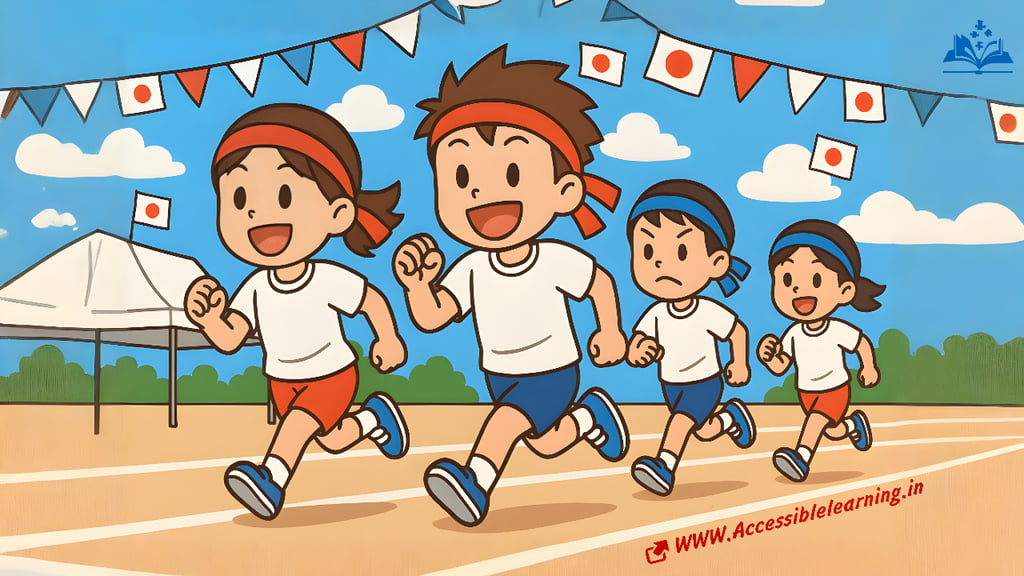
Sports Day (Taiiku no Hi): Japan’s Festival of Health, Fitness, and Unity
Discover the significance of Sports Day (Taiiku no Hi) in Japan, a national holiday that celebrates health, fitness, teamwork, and community through school festivals, athletic events, and cultural unity. Learn its history, meaning, and modern-day importance.
EVENT/SPECIALSTORY/ENTERTAINMENTCELEBRATION/FESTIVALS
Kim Shin
10/5/20253 min read


Every October, Japan comes alive with vibrant cheers, athletic competitions, and a strong sense of community during Sports Day (Taiiku no Hi). Officially known as Health and Sports Day, this national holiday highlights the importance of physical fitness, well-being, and unity. More than just an athletic event, Sports Day embodies Japan’s cultural values of perseverance, teamwork, and respect.
Origins of Sports Day (Taiiku no Hi)
Sports Day was first established in 1966, commemorating the opening of the 1964 Tokyo Olympics, which symbolized Japan’s post-war recovery and reintroduction to the global stage. Initially held on October 10th, the date marked the start of the Olympic Games.
Later, under the Happy Monday System (introduced in 2000), Sports Day was moved to the second Monday of October to create a three-day weekend for families and communities. In 2020, its official Japanese name was changed from Taiiku no Hi (体育の日, “Physical Education Day”) to Supōtsu no Hi (スポーツの日, “Sports Day”), reflecting a broader international appeal.
Meaning and Cultural Significance
Sports Day is not just about physical exercise—it carries deeper cultural meaning:
Promoting Health and Fitness 🧘♀️ – A reminder of the importance of staying active and healthy throughout life.
Encouraging Community Bonds 🤝 – Families, schools, and neighborhoods come together for group activities, strengthening social ties.
Honoring Team Spirit & Fair Play ⚖️ – The holiday emphasizes cooperation, discipline, and sportsmanship.
Inspiring the Next Generation 🌱 – Children learn values of perseverance, unity, and respect through fun and competition.
How Sports Day is Celebrated in Japan
Across Japan, schools, communities, and local governments host events that balance fun with fitness. Here’s how the celebrations usually unfold:
1. School Sports Festivals (Undōkai)
The highlight of Sports Day is the Undōkai (運動会)—a grand sports festival held in schools. Parents, teachers, and students all participate. Events often include:
Relay Races—A test of speed and teamwork.
Tug-of-War (Tsunahiki)—Symbolizing unity and strength.
Dance Performances (Sōran Bushi, Cheer Dances)—Adding creativity and culture.
Obstacle Courses—Fun challenges combining agility and laughter.
Parent-Child Competitions—Encouraging family participation.
2. Community Events
Local communities organize games and fitness activities for all ages—ranging from elderly-friendly exercises to youth sports tournaments.
3. National Fitness Campaigns
The government promotes healthy lifestyles through campaigns, public exercise sessions, and awareness programs.

International Relevance of Sports Day
While Sports Day is uniquely Japanese, its values resonate globally:
Encouraging physical wellness in an increasingly sedentary world.
Promoting cultural unity through sports, much like the Olympics.
Serving as a model for other nations to blend fitness with tradition and community bonding.
Sports Day in Modern Japan
In recent years, Sports Day has adapted to modern needs:
Corporate Wellness Programs—Companies host fitness activities on this day to reduce workplace stress.
Digital Fitness—Online workout sessions and virtual competitions are gaining popularity.
Focus on Inclusivity—Events are designed for people of all ages, from children to senior citizens.
Even during the pandemic, many schools and communities innovated with smaller or virtual events, ensuring the spirit of Sports Day remained alive.
Key Facts About Sports Day
Holiday Name: Sports Day (Supōtsu no Hi / formerly Taiiku no Hi)
Date: Second Monday of October (national holiday)
Origin: Commemorates the 1964 Tokyo Olympics opening ceremony
Purpose: Promote health, fitness, sportsmanship, and community unity
Celebrations: School sports festivals (Undōkai), community games, public health campaigns
Why Sports Day Matters Today
In a fast-paced, digital-first world, Sports Day serves as a gentle reminder of the importance of balance. It encourages people to step away from screens, move their bodies, and connect with their communities. By emphasizing both physical health and emotional well-being, Sports Day continues to inspire generations across Japan.
Sports Day (Taiiku no Hi) is more than a holiday—it is a celebration of life, unity, and resilience. Rooted in Olympic history yet evolving with modern society, it teaches us that sports are not just about winning but about participation, teamwork, and joy. Whether you’re in Japan or elsewhere, the spirit of Sports Day offers a valuable lesson: take time to celebrate health, community, and the simple joy of moving together.
Subscribe To Our Newsletter
All © Copyright reserved by Accessible-Learning Hub
| Terms & Conditions
Knowledge is power. Learn with Us. 📚


